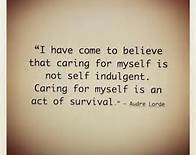The festive season is an especially tough time of year when you suffer with a mental illness. It can be exhausting, overwhelming and sometimes trigger difficult thoughts and feelings. As #PNDHour is about coping with the festive season today (9/12) I thought I’d share some tip straight from those who’ve experienced mental illness over the festive period.
I hope they help you to see that you are not alone and that it is ok to put yourself first!
Rosey xx
- “Not too much caffeine or alcohol, neither are great for anxiety or stress!”
A great tip here, it can be tempting to overindulge but these two drinks aren’t good for anxiety or stress. It’s all about balance, enjoy yourself but be mindful of what could heighten anxiety/stress levels.
2. “Try not to set yourself high expectations. Try to focus on enjoying the moment without trying to create the ‘perfect’ Christmas. I tried to do this for years and always ended up feeling that it hadn’t lived up to my expectations and feeling a failure”.
We can put a lot of pressure on ourselves to make Christmas day “perfect” but the important thing is to look after yourself. Enjoy those little moments and make a mental note of them, that way even if the day feels stressful and overwhelming you can look back and remember those little moments.
“To write a list of the things to be grateful for and focus on the good” Kat @ Beautwins
3. “Do what suits you and cut out all the rest. Make it clear to others what your plans are so that nobody takes the huff at the last minute“.
Don’t be afraid to say no. This is your Christmas! If you’re already feeling low it can be hard to speak out but remember YOU matter and it is not selfish to take care of yourself.
4. “Don’t be afraid to take yourself away for a break if everything is getting too much. Five or ten minutes in a quiet room does wonders to clear the mind. Yes, I know finding anywhere quiet is a challenge when you have wee ones hanging off you at Christmas but it’s doable especially if you can let another person know about your mini “escape plan”.
I love this, make sure someone else knows if you’re finding things a bit difficult, so they can support you if you need to take a few minutes to yourself to regroup it will really help you.
5. “Up the self care, be as positive as possible and remember not every Christmas will feel like this, surround yourself with supportive and helpful people”.
SO important to remember, although this Christmas may be tough, there will be others. Take a few moments through the tough days to remind yourself how strong you are, and be proud of the fight you are fighting against mental illness, that makes you one tough cookie!
6. “If someone offers to help, let them”.
Easier said than done I know, but try and let people help if they offer, or ask for help if you feel you need it. It can really help to take the pressure off and will help you enjoy the day that little bit more.
7. “Forgive yourself. Go easy on yourself and don’t beat yourself up over the things that don’t really matter”.
So the best laid plans don’t always work out, but that’s ok. Give yourself a break, Christmas is bloody hard work and you’re doing your best!
8. “Be kind to yourself and do what you feel up to. If you have always made mince pies for example until this year – buy them! Get vouchers as gifts. KISS xxxx keep it simply stress free xxx“.
I’ll simply follow this up with a quote from Audre Lorde : 
9. ” If social media is a trigger turn it off for a couple of days to avoid the “competing” – I get really wound up by the photos of massive piles of presents for example.
Try to remember that it is only a few days and that the feelings will pass”.
Great advice, know your triggers then you can try to avoid them, reduces the stress and help you to enjoy each moment.
10. A little tip from me.
Get as much sleep as you can, look after yourself, take photos (include yourself!) and know that not every Christmas will be tough and be proud of yourself for fighting depression/anxiety. You are doing your best and that is good enough xx
Join us on Twitter and use the #PNDChat hashtag for peer support and find us on Facebook




